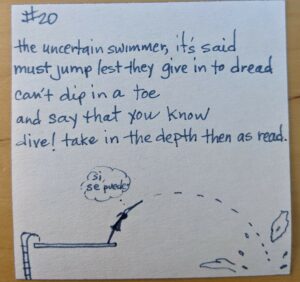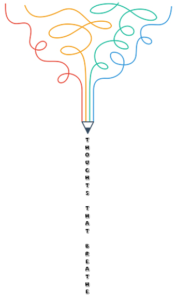Somewhere, college-aged me is face-palming in dismay.
My junior year we were required to read Alexander Pope’s An Essay on Criticism. To say that it was a slog is an understatement; I could not STAND his know-it-all tone and his insistence that all the great minds had to make their way through the Greeks and other classical writers, and that good poets must write in a prescribed way – prescribed by him, of course. Add to that, it was written in verse so there was this overarching sense of self-superiority AND rhymed couplets. Gah! Imagine my disgust to learn that he was, at the time of his publication, all of twenty-three — nearly the same age as I was — and yet he pontificated as if he knew EVERYTHING.
Granted, he knew more than I did, but STILL.
Despite how annoying Pope was, we get tons of witty sayings from him — “To err is human, to forgive, divine,” and “Fools rush in where angels fear to tread” among the most notable. His declaiming today’s proverb wasn’t really original, writing, as he did, during the Age of Enlightenment where the publication of works became more commonly accessible. Suddenly anyone – gasp! – who could read had access to learned discourse, not just those who had been classically educated at the best schools. On that more level playing field, English politician/philosopher Sir Francis Bacon published a 1601 essay on atheism. In it he argued, “A little philosophy inclineth man’s mind to atheism; but depth in philosophy bringeth men’s minds about to religion.” That train of thought is a cousin of our proverb:
“A little learning is a dangerous thing;”
drink deep, or taste not the Pierian spring:
there shallow draughts intoxicate the brain,
and drinking largely sobers us again.
– Alexander Pope, An Essay on Criticism, 1711

the risk
the uncertain swimmer, it’s said
must jump, lest they give in to dread.
can’t dip in a toe
and say that you know
dive! perceive the depth then as read
Is a little learning is a dangerous thing? Perhaps, although maybe knowing even a little can alert you to the vast seas of ignorance in which you’ve previously been content to swim. At least one can hope so.
